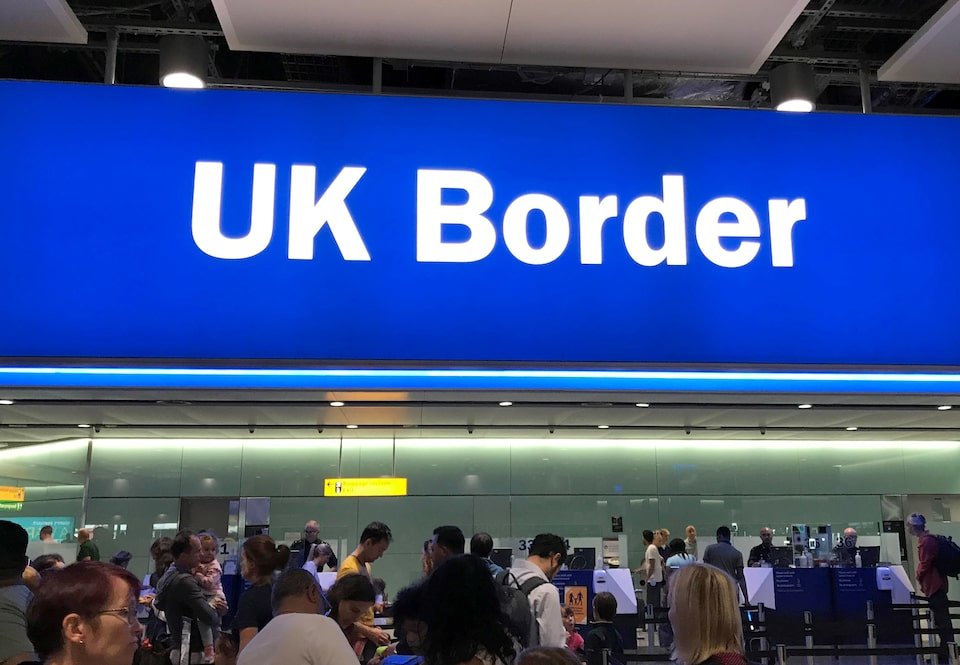
UK Net Migration Falls by Two-Thirds Amid Tighter Immigration Laws
Net migration fell to 204,000 in the year to June 2025 — the lowest figure since 2021, as visa rules tighten and emigration rises
Net migration into the United Kingdom dropped sharply to 204,000 in the year to June 2025, marking a nearly two-thirds decline compared with the previous year, according to data released by the national statistics office.
The fall — the lowest annual total since 2021 — reflects a steep decrease in arrivals alongside a modest increase in departures.
The decline was driven by a dramatic reduction in non-European migration: immigration for work by non-EU nationals plunged by 61 per cent, while student-related immigration fell by 25 per cent.
Additional policy measures introduced over the past 18 months have contributed to the fall, including higher salary thresholds for skilled worker visas, tighter restrictions on student dependants, and the cancellation of the care-worker visa route — previously one of the largest sources of work migration.
At the same time, emigration from the UK rose, particularly among British citizens and EU nationals.
The statistics agency reports net outflows of 109,000 UK citizens and 70,000 EU citizens during the period, continuing a post-Brexit trend.
Young adults under 35 made up a large proportion of those leaving, raising questions about potential long-term demographic and labour-market implications.
The drop comes as the Labour government under Prime Minister Keir Starmer continues in effect the tough migration stance previously adopted by his Conservative predecessor.
The government has defended the policy package, citing pressures on public services, housing and community infrastructure.
Interior Minister Shabana Mahmood said the new figures show the measures are working — but also signalled further action to control what the administration calls “unsustainable” migration levels.
Nevertheless, public concern over immigration remains high — especially amid ongoing arrivals of asylum seekers via small-boat crossings from France.
According to research by a leading think tank, many of those most concerned about immigration appear unaware of the sharp drop in overall net migration, reflecting a persistent perception gap.
For now, the latest statistics offer a clear signal that the UK has entered a new phase in its immigration history: a result of deliberate policy choices that reshape not only who enters the country — but who chooses to leave it.
The fall — the lowest annual total since 2021 — reflects a steep decrease in arrivals alongside a modest increase in departures.
The decline was driven by a dramatic reduction in non-European migration: immigration for work by non-EU nationals plunged by 61 per cent, while student-related immigration fell by 25 per cent.
Additional policy measures introduced over the past 18 months have contributed to the fall, including higher salary thresholds for skilled worker visas, tighter restrictions on student dependants, and the cancellation of the care-worker visa route — previously one of the largest sources of work migration.
At the same time, emigration from the UK rose, particularly among British citizens and EU nationals.
The statistics agency reports net outflows of 109,000 UK citizens and 70,000 EU citizens during the period, continuing a post-Brexit trend.
Young adults under 35 made up a large proportion of those leaving, raising questions about potential long-term demographic and labour-market implications.
The drop comes as the Labour government under Prime Minister Keir Starmer continues in effect the tough migration stance previously adopted by his Conservative predecessor.
The government has defended the policy package, citing pressures on public services, housing and community infrastructure.
Interior Minister Shabana Mahmood said the new figures show the measures are working — but also signalled further action to control what the administration calls “unsustainable” migration levels.
Nevertheless, public concern over immigration remains high — especially amid ongoing arrivals of asylum seekers via small-boat crossings from France.
According to research by a leading think tank, many of those most concerned about immigration appear unaware of the sharp drop in overall net migration, reflecting a persistent perception gap.
For now, the latest statistics offer a clear signal that the UK has entered a new phase in its immigration history: a result of deliberate policy choices that reshape not only who enters the country — but who chooses to leave it.









